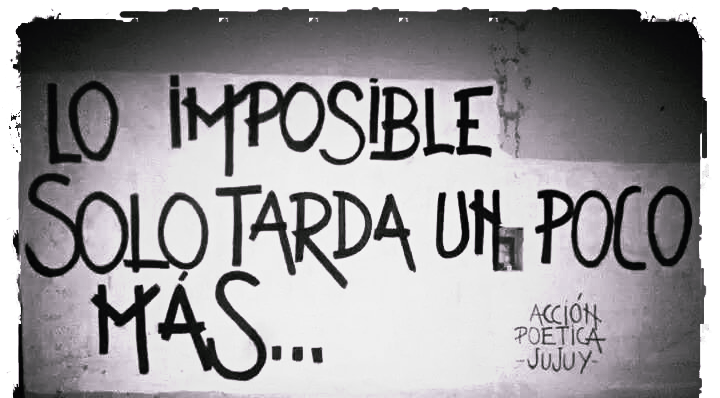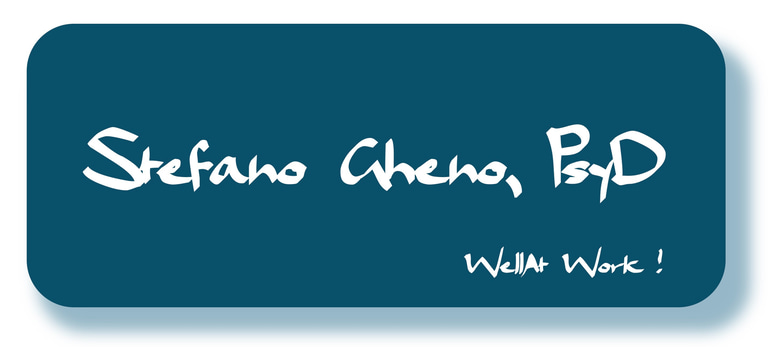The core of self-empowerment
"Power is beautiful!" we wrote—together with Massimo Bruscaglioni—almost 25 years ago in the book through which we sought to make our idea of psychological empowerment known. In this brief post, I would like to succinctly and, I hope, convincingly revisit the reasoning behind this statement and the method that follows from it.
BLOG_ENG
sg
5 min read


The concept of empowerment was born and developed in the United States during a specific historical and cultural period. Today, more than fifty years later, it is a term used worldwide with many different meanings. However, when it was first introduced, it mainly referred to social psychology, particularly community psychology. Essentially, empowerment speaks to the need to give "power" to individuals and communities, especially those in disadvantaged conditions.
It is a concept that can be observed on several levels. We can discuss it in social, community, organizational, and finally, personal or psychological terms. When we focus on the latter aspect, empowerment translates into what we call the "feeling of power." A good level of the feeling of power means feeling able to have control over one's life, as opposed to feeling powerless. The term also refers to the psychological process that allows us to develop this sense of power.
Massimo Bruscaglioni introduced the term "self-empowerment" to describe how we develop our personal sense of power. It's important to note that the word "power" has various nuances. In Italy, we often view it as a relational dynamic: having power over someone means influencing others and having authority over them. However, this is not the only possible definition. We can also talk about "power from," representing people who see themselves as independent from others, who “don’t need to ask anyone for anything.” Then, there is the "power to," where power, rather than a noun, becomes a verb. It is a more positive conception of power that conveys the idea of possibility: in a recent speech, Mauro Magatti said, "power, the infinitive of the verb 'I can'." While relational power tends to limit others' freedom, positive power amplifies it. Thus, these are two different visions of power, often in contrast with each other.
Desire is a fundamental resource for developing our sense of power, so to understand how it works, we start here. Even though "desire" can be considered an umbrella term, in the context of the self-empowerment culture, it has a specific meaning and characteristics worth exploring, as it’s difficult to work on it and use it effectively without knowing these traits.
The first step in our journey comes from what I call "the self in situation." If we think of human beings in their ecological context, i.e., in relation to the environment and the various situations life presents, a fundamental fact emerges: we all have needs and requirements. Our actions stem from these needs. However, it’s equally evident—at least to a critical observer—that simply recognizing we have a need is not enough to act. To move forward, our need must turn into desire. The key element of self-empowerment is precisely this dynamic between need and desire. It is desire that allows us to think and open ourselves to new possibilities. As we progress through life, the question arises: "How can I fulfill my desire?" This is where we start, forming hypotheses about how to achieve it.
This is where action comes into play: it's the moment when we test the possibilities we’ve thought of. Without action, we can’t truly materialize anything. Even if we start with an idea or a project, to turn that possibility into "real" reality, we must try. However, taking action isn’t always easy. It requires a lot of energy, and usually, it’s desire that drives us: we move because a desire guides us. So, working on desire means not only thinking but also supporting our movement and actions.
We often try to strengthen our sense of power to fulfill the desire to change something in our lives, and we commit to this goal. But if we truly desire change, why don’t we just do it? It’s true that sometimes we don’t know where to start, but I believe it’s not just a lack of competence: there’s a deeper resistance to change, even when facing clearly disadvantageous situations. So, the main reasons for this resistance are threefold:
- We don’t truly believe that change is necessary or advantageous: we think we can reach our goal without modifying the conditions we live in;
- We think that change is useful or necessary, but we don’t know how to go about it, and this paralyzes us;
- Finally, we might know what to do and how to do it, but we don’t feel capable of succeeding due to a lack of adequate resources.
At this point, it’s essential to introduce a new element that significantly impacts the development of personal power: the so-called "psychological killers." These do not overlap with our limitations or deficiencies, nor do they coincide with the fatigue resulting from the difficulties we encounter. Rather, they can be defined as factors that block our initiatives to overcome that fatigue, which is inevitable in the process of change. There is, therefore, a relationship between fatigue, discomfort, and psychological killers, but it’s a complex and non-linear relationship. So, where do these “blocking factors” come from?
The first truly human experience is recognizing our own needs, our lack of something, our limitations. This happens very early in life and represents a fundamental experience that creates a tension between the omnipotence typical of children ("I can do anything") and impotence. It’s from this tension that difficulties begin to take root, which, later on, will lead to the formation of what we call psychological killers.
As we continue through life, we realize that despite the wound caused by the awareness of our lacks and limits, we are capable of desire. In fact, we are "programmed" to activate desire whenever a need arises. Thus, a person is not crushed by their limitations but initiates a process of empowerment, opening up new possibilities that allow them not to be defined by the limitation itself but to pursue their desires.
However, as this desire dynamic is activated, the original tension re-emerges: if I’m not omnipotent, I must be powerless. The reduction of desire becomes an attempt to protect oneself from the frustration of impotence: “it’s not that I can’t, it’s just that I’m not interested,” “it’s not for me,” or even: “someone else is preventing me.”
Many problems arise from this reduction! Indeed, without the energy that comes from desire, our sense of agency is drastically reduced, risking disappearing altogether. On the other hand, psychological killers are a manifestation of our history (also defined as "subjective historical difficulties") and, in a way, remind us of our limits, tempering the temptation of omnipotence and allowing for a healthy reality check. So, what should we do? To develop self-empowerment, it is necessary to reduce the power that these historical difficulties have over us. We call this process of weakening them “de-killering.” The main strategies to achieve this are threefold:
1. Avoidance: There are obstacles, both inside and outside of us, that we need to neutralize. One way is to go around them, finding alternative routes, perhaps slower, but that allow us to overcome the obstacle. This first requires understanding the nature of the killer and knowing the resources available to us. It’s important not to look too closely at the problem, to avoid confusing ourselves with the obstacle. By taking some distance, we broaden our vision, noticing more details and alternatives for addressing it.
2. Field restructuring: Let’s try to change our perspective. One characteristic of psychological killers is that they make us believe there’s only one way of doing things and that we are incapable of doing it. Changing perspective means creating new relationships between the elements that make up our psychological field, to identify different ways of interpreting reality and acting accordingly.
3. Accompaniment: Walking alongside others makes the journey less tiring. As relational beings, mutual support is crucial for our well-being. However, when facing our problems, we often feel alone: “no one can understand what I’m going through” or “I have to do this on my own, it’s embarrassing to ask for help.” In reality, the ability to seek help is a key resource for empowerment. No one can give us our personal power, but together we can find it, and others can help us recognize it.
Stefano Gheno, PsyD
Sono un consulente di vecchia data! Sarò felice di accompagnarti nelle sfide che vorrai condividere con me.
